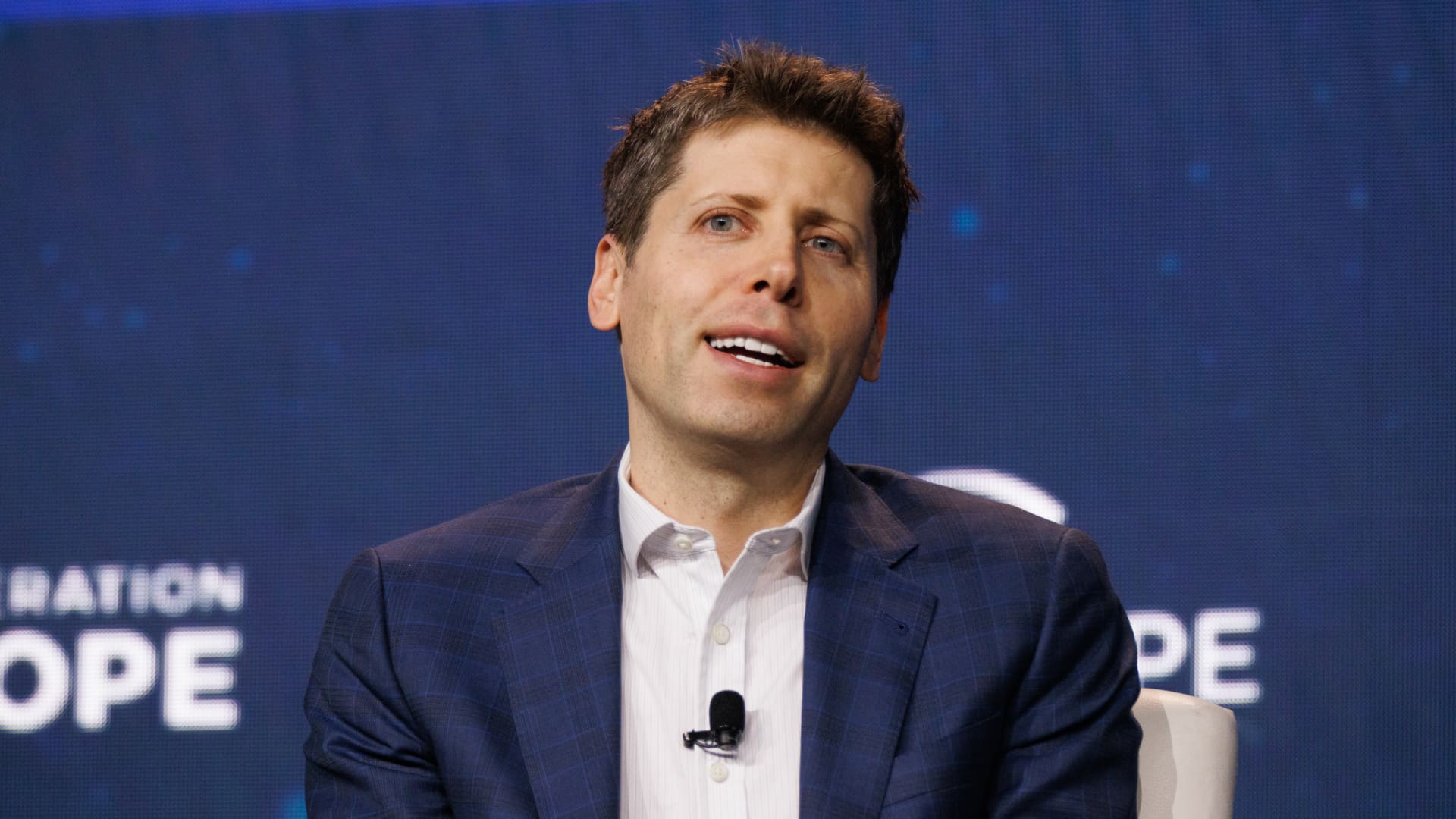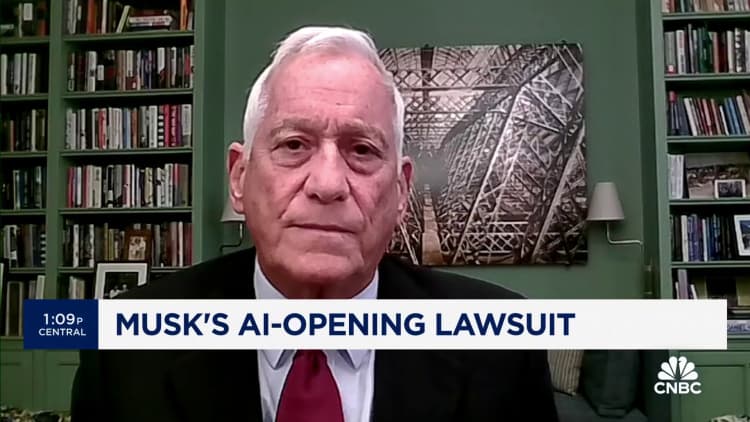

Sam Altman, CEO of OpenAI, at the Hope Global Forums annual meeting in Atlanta on Dec. 11, 2023.
Dustin Chambers | Bloomberg | Getty Images
OpenAI executives disputed claims Elon Musk laid out in a lawsuit on Thursday, and said the Tesla CEO is upset that he’s no longer part of the artificial intelligence startup.
“We believe the claims in this suit may stem from Elon’s regrets about not being involved with the company today,” wrote OpenAI Chief Strategy Officer Jason Kwon in an internal memo on Friday that was viewed by CNBC. “It is deeply disappointing to see Elon take this action against a company he helped start, especially given his close collaboration with some of you who are still here working towards the mission.”
Musk co-founded OpenAI in 2015 and stepped down from its board in 2018, four years after saying that AI is “potentially more dangerous than nukes.”
Musk is now suing Microsoft–backed OpenAI and CEO Sam Altman, among others, alleging they abandoned the company’s founding mission to develop artificial intelligence “for the benefit of humanity broadly.”
Since releasing the ChatGPT chatbot to the public in late 2022, OpenAI has become one of the hottest startups on the planet, with a valuation reportedly over $80 billion. The company’s convoluted “capped-profit” structure resulted in Altman being briefly ousted by the board late last year, before an uproar among investors and employees led to his quick reinstatement.
Musk has long wanted recognition for his central role in the creation of OpenAI, and he spent large chunks of the lawsuit telling his version of events. His lawyers said in the suit that Musk was approached in 2015 by Altman and OpenAI co-founder Greg Brockman and agreed to form a nonprofit lab that would develop artificial general intelligence, or AGI, outside of the corporate sphere.
Musk’s attorneys said their client contributed over $15 million to OpenAI in 2016, which was “more than any other donor” and helped the startup build a team of “top talent.” The next year, Musk gave nearly $20 million to OpenAI, which the attorneys reiterated was more than other backers. In total, Musk invested over $44 million into OpenAI from 2016 through September 2020, according to the suit.
Additionally, Musk leased OpenAI’s initial office space “and paid the monthly rental expenses,” the suit said. He was also “present for important company milestones.”
Kwon didn’t dispute Musk’s central role in the early days of OpenAI, but he added some other details. For example, Kwon wrote that Musk at one point indicated he needed “full initial control and majority equity” and later suggested that OpenAI merge with Tesla.
“We did not think either approach was right for the mission,” Kwon wrote.
In the memo, Altman called Musk a hero of his and said the he misses the old version of his co-founder. But he said the company’s mission continues.
While it’s the first time the dispute between the two sides has resulted in a fiery lawsuit, they’ve been at odds for a while.
Before he split with OpenAI, Tesla hired co-founder Andrej Karpathy as senior director of AI. Karpathy returned to OpenAI in 2023. And Musk has been notably vocal in his opposition to OpenAI and its Microsoft partnership in recent years, stating publicly in November that OpenAI had deviated from its original mission.
“OpenAI should be renamed ‘super closed source for maximum profit AI,’ because this is what it actually is,” Musk said onstage at The New York Times’ DealBook conference. Regarding OpenAI’s transformation from an “open source foundation” to a multibillion-dollar for-profit company, Musk said, “I don’t know, is this legal?”
Kwon insisted on Friday that OpenAI is independent and continues to work “to ensure AGI benefits all of humanity.”
Musk’s lawyers didn’t immediately respond to a request for comment.
— CNBC’s Lora Kolodny and Hayden Field contributed to this report
WATCH: Elon Musk lawsuit against OpenAI and Altman began a year ago





